Profits, Pattern Bargaining, Performance Pay On The Docket As UAW Negotiations Begin
With the Detroit Free Press reporting that combined Q2 profits for the Detroit automakers could hit $4b, the quadrennial negotiations with the UAW which opened today with a meeting between Chrysler and the union could be a tough slog. And because the profit outlook is mixed, with GM and Chrysler likely to improve profitability and Ford likely to see a drop in net takings, the long-standing tradition of “pattern bargaining” could come to an end. Ford currently pays about a dollar more per hour than GM and about $2 per hour more than Chrysler (which is partially owned by the UAW’s VEBA trust fund), and Ford also shoulders more of workers’ health care costs than its cross-town rivals. And UAW president Bob King admits
Being really blunt about it, when you don’t represent the overwhelming majority of an industry, which we don’t any more, then you can’t do pattern bargaining
Already unfairly disadvantaged by the UAW (Ford is the only Detroit-based automaker without a no-strike contract) and facing falling profitability, Ford is telling the union not to expect wage increases. But does that mean the union’s only choice is to bring GM and Chrysler up to Ford’s pay and benefit levels?
Saab To Stay Shuttered Through August
After spending much of this year not producing vehicles, Saab is anxious to get to work on its 11,000 vehicle backlog of orders, and production was supposed to start on August 9 after workers return from Summer vacation. But a Saab press release reveals that the troubles aren’t over, with short term financing and supplier agreements still to hammer out, and that production won’t resume until August 29 at the earliest. Gunnar Brunius, Vice President of Production and Purchasing explains:
I am positive about the progress we made on the payment terms with our suppliers and it is good to see that we all want to make it work. What we need now is a full commitment on supply of parts into our factory to be able to restart production and secure a stable manufacturing operation. We are now working hard with our suppliers to nail down these plans, commit to a delivery schedule and start building the close to 11,000 cars that we currently have in our order books. The industry-wide summer break at our suppliers caused certain key suppliers not to be able to supply us in time. Saab Automobile hopes to restart production earliest in week 35 provided that it is able to commit to a delivery schedule with its suppliers.
But wait, there is some good news! Saab’s Communications Manager Eric Geers tells GP.se
I can promise one hundred percent to the salaries paid next week. Where the money comes from is not important, the main thing is that we pay [emphasis added]
That kind of sums up the whole Saab situation nicely, doesn’t it?
Audi: On Second Thought, We'd Prefer A Plant In Mexico
It was quite a coincidence when, just last week, Audi restated its interest in US production facilities on the same day that the UAW announced it was in talks to possibly organize VW’s new Chattanooga plant. At the time we noted that
With Audi execs insisting on the need for more US production capacity, a UAW win in a Volkswagen vote could have serious implications for the firm’s future expansion.
Turns out, it didn’t even have to come to a vote. Just over a week after CEO Rupert Stadler insisted that “It is totally clear that we need new production capacity in the U.S,” Audi has suddenly decided that things look nicer in union-free Mexico. Automotive News [sub] reports that Stadler wants a new Mexican plant to build the Q5 SUV, but notes that
it was still unclear if Stadler would have his way in the face of opposition from some of Volkswagen’s top managers, who wanted Audi to make use of the new VW plant in Chattanooga, Tennessee.
Did the UAW’s sudden announcement that it was in talks with VW’s global works council about organizing Chattanooga have anything to do with the decision? AN [sub] won’t say, but the timing can’t be ignored. Audi’s US production may just have been the first victim of the UAW’s transplant organization campaign.
UAW Talking To "A Lot" Of Transplants, But Soft-Pedals Goal
After the UAW threatened to start 2011 with a bang by going after foreign-owned “transplant” factories and accusing uncooperative firms of human rights violations, the union’s campaign suddenly went quiet earlier this year. With the union’s fate apparently hanging in the balance, all we’d heard was a polite “no thanks” from Honda and a more subtle message from Hyundai, and little else. Was the war still on, we wondered? UAW boss Bob King tells Reuters that yes, it definitely is… sort of.
To our pleasant surprise a lot of companies have agreed to confidential discussions with us. What they’ll lead to, I don’t know. Some days I’m worried, some days I’m frustrated. Are we putting too much hope into these discussions? I don’t know, but we’re continuing them and we feel like we’re making some progress
And that’s not all…
UAW Backs "Strong" Emissions Standards After All… For A Price
Last week I wondered aloud about where the UAW stands on fuel economy, inspired by the union’s apparent flip-flopping between supporting the companies that employ its workers and backing its environmental allies on the left with talk of its commitment to green jobs. And after expressing concern about proposed CAFE increases, it seems the UAW is flopping back towards the environmentalist side of the equation, joining the so-called “Blue-Green Coalition” of labor leaders and environmental groups in expressing its vague support for “strong” emissions standards in a letter to President Obama [ PDF]. But with CAFE negotiations coming down to within 5 MPG or so of a final “number” for the 2052 standard, the letter’s lack of commitment means it’s still not clear where the UAW comes down in the policy debate. So instead of highlighting the union’s commitment to the environment, the letter ends up serving as a window into the UAW’s cynical, yet self-deluding side.
Sergio Marchionne Is Not Superman, Will Delegate Responsibility
Every time Sergio Marchionne makes the headlines, I half expect him to announce that he is not merely a mild-mannered accountant with a fondness for frump, but a mighty superhero, born to rescue failing automakers and the American and Italian ways of life. Having scored a sizable stake a bankruptcy-rinsed Chrysler for no money down, Marchionne has been ruling his Italian and American empires with resolute authority… and 50 direct reports. But Automotive News [sub] isn’t reporting that Marchionne spends his spare time in tights and a cape fighting Russian bandits and Italian labor unions… the word is that Sergio Marchionne is ready to delegate some authority. According to AN’s sources, Marchionne’s plans includes three basic planks:
- Create four regions — Europe, North America, Latin America and Asia-Pacific — each with a regional boss.
- Require brand bosses, who are powerful in the current organization, to work closely with the new regional bosses.
- Establish a new layer of management, tentatively dubbed the steering committee, that would help run Fiat and Chrysler.
But is this new structure really going to end what AN terms “the one-man Sergio show,” a routine of 18-hour days and “catching catnaps on the plane as he flies constantly between Turin and Detroit”? Will it really “help overworked Chrysler executives catch their breath and adopt a saner work rhythm,” as AN puts it? That question remains to be answered…
Ask The Best And Brightest: Why Can't Chrysler Workers Stop Partying On Their Lunch Break?
Chrysler Auto Workers in Trenton Caught Smoking and Drinking During Lunch Breaks: MyFoxDETROIT.com
Every time Chrysler workers get busted for drinking and smoking pot during their lunch breaks, we tend to get one of two reactions from the B&B: either the lunchtime partying is emblematic of the entitlement of all union workers, or it happens at every plant in the US but Chrysler just got unlucky enough to get caught. But this is the third scandal since last September involving Chrysler workers consuming drugs and alcohol on camera ( twice at Jefferson North, now in Trenton), and (as far as I can tell) no other company has suffered similar embarrassment.
So I want the convenient generalizations put aside for a moment: clearly this is not a union problem or an American worker problem or even an auto workers-in-general problem… at this point it’s a Chrysler problem. But why? Does Chrysler have lower morale, worse union locals, insufficient training and accountability, or is the media simply targeting it? Someone’s got to get to the bottom of this before Chrysler becomes a complete laughing stock… so let’s hear your (constructive) thoughts. Oh, and ideas for actually fixing the problem (Chrysler has already announced suspensions) probably wouldn’t hurt either.
Fiat And Chrysler To Make It Official, Unified Management Coming "Soon"
When Fiat and the US government collaborated to bail out and restructure Chrysler, many hailed the news as nothing less than the rescue of the American auto industry. Though Fiat CEO Sergio Marchionne became CEO of the Auburn Hills-based automaker, he maintained much of its management corps on the strength of brief interviews, only relieving a few key members of the old guard. But the debate over whether the rapidly-aligning Fiat-Chrysler is more Fiat or Chrysler is going to be resolved “pretty quickly” according to Marchionne, as Bloomberg reports that a unified management structure is in the works.
Marchionne is working on management changes as he steps up the integration of the two companies. He plans to merge the carmakers to reduce costs and achieve a target of more than 100 billion euros ($140 billion) in combined revenue by 2014. The executive said in May that the timing of a merger hasn’t been decided yet, adding that a combination isn’t likely this year.
But just as there was furor in Italy when Marchionne suggested that the unified Fiat-Chrysler could be headquartered in Detroit, the unified management structure could be yet another source of controversy. It will, after all, be the most direct signal yet as to whether Fiat-Chrysler is an Italian firm with global operations, an Italian-American alliance or a truly global firm. For one thing, unified management should force Marchionne to commit to a single headquarters for the group, reviving a controversy he temporarily cooled by fatuously suggesting there be four Fiat-Chrysler “headquarters,” in Turin, Detroit, Brasil and “Asia.” Having masterfully finessed the PR messaging transition from “rescue of an American automaker” to “wholly owned subsidiary” thus far, a unified management could bring up a lot of unresolved issues. In short, it’s a branding challenge that makes the Chrysler-Lancia transformation look like child’s play…
Where Does The UAW Stand On Fuel Economy?
The United Auto Workers have proven that they’ll come out in support of greenhouse gas regulation when they think it’s in their interests, but what happens now that the union-built green-car future isn’t turning out to be the jobs-loaded utopia they predicted? With CAFE standards of 56.2 MPG by 2025 being proposed, the union has a choice to make: back the government that saved it or the automakers it’s currently negotiating with for jobs? Unless, of course, there’s some kind of principle here…
Toyota Is Circling The Wagons To Fend Off The Yen
“Producing in Japan will remain extremely difficult as long as the conditions don’t change,” said Akio Toyoda today, and appealed to the Japanese government to “level the playing field.” Toyota did some leveling of its own. In a big board meeting, Toyota leveled swaths of corporate structures.
$36m Bridge Loan "Saves" Saab, Workers Paid, Production Could Resume. So What's Sweden's Problem?
Almost two months ago, Saab was able to restart production after Gemini Investment Fund extended a €30m six-month convertible loan to the struggling Swedish automaker. Now, after another shutdown, it seems that Gemini has once again ridden to Saab’s rescue, as the company announces another six-month convertible loan from Gemini.
Swedish Automobile N.V. (SWAN) announces that it entered into a EUR 25 million convertible bridge loan agreement with Gemini Investment Fund Limited (Gemini), thereby securing additional short-term funding.
SWAN entered into a EUR 25 million convertible bridge loan agreement with Gemini with a 6 months maturity. The interest rate of the loan is 10% per annum and the conversion price is EUR 1.38 per share (the volume weighted average price over the past 10 trading days). SWAN may at any time during the loan’s term redeem it without penalty and it intends to do so once the funding from Pang Da and Youngman is received, in which case no dilution as a result of this bridge loan will occur.
Attention Chinese, Swedish and European Investment Bank regulators: you’d better cut through that red tape and approve the Pang Da and Youngman investments post-haste, or Saab will be back in the drink when these short-term loans mature. After all, hasn’t Valdimir Antonov been waiting for approval to buy into Saab since.. oh, 2009?
Saab Sells Factory, But Sweden and EIB May Be Killing It Off Anyway
Saab has reached a deal to sell 50.1% of its real estate holdings to a consortium led by Hemfosa Fastigheter AB, for about $40m, and has also received an order for $18.4m worth of vehicles from an unnamed Chinese firm according to AN [sub], giving the dead-alive Swedish firm the faintest, cruelest glimmer of hope. The real estate deal was for about a third less than the property had previously been valued at, and still needs to be approved by the Swedish Debt Office, the EIB and GM. Meanwhile, the real struggle is ongoing, as a Saab spokesperson tells Reuters that
Today’s news takes us a good way in the right direction, but it is the agreement (with suppliers) that matters and only then will we be able to communicate a date when we can restart production
But suppliers aren’t even the first in line for Saab’s much-needed cash injection: that goes to workers who are promising to take the company into bankruptcy if they aren’t paid soon. These two recent deals should be enough to pay worker salaries through July, but if suppliers aren’t brought back as well to restart production, the bulk sale and an earlier order from PangDa will never be filled. And those suppliers are currently mulling over an offer of ten percent of what they are owed until the Chinese inject more cash later in the year… not the greatest deal ever. Meanwhile, Saab says
There are other initiatives still being pursued. There is not much we can say about that until we have something concrete to communicate
Like what? What could there possibly be to communicate?
The End Is Near: Saab Can't Meet Payroll
And this is how it usually ends. Saab spokesperson Gunilla Gustavs said “it is regrettable to have to notify staff of the day before midsummer,” that Saab is unable to pay this months wages to its employees. What’s more, Saab has no idea if and when it will send out paychecks again. “It is impossible to make any sort of forecast, except to repeat that the company is trying to solve this as quickly as possible,” said Gustavs to the wire-service TT [via TheLocal].
Saab employees were told via email this Thursday morning that no money will hit their accounts by month’s end.
After The Tsunami: A Wave Of Jobs
Japanese automakers are gearing up in earnest to make up for production lost after the March 11 tsunami. Across the island nation, there are new signs of resurgence. They read “we hire” (or Japanese words to that effect.) Automakers are hiring thousands of contract workers that had been let go after the financial crisis.
Will The UAW Accept Performance Pay?
It’s not difficult to understand why the UAW has never contemplated agreeing to a wage rate tied to the profitability of its employer firms: simply put, it’s been a long time since big profits were the norm among the union-represented Detroit automakers. But now that Motown is back in the black and handing out record profit-sharing checks, it looks like the UAW could finally tie its own fate to that of the automakers… on certain conditions. UAW boss Bob King tells The WSJ [sub]
It would be an advantage if you can guarantee to the [Detroit] companies certain things on fixed costs so that they would remain competitive. When you’re successful, that’s good. But if you’re sharing more of the risk, you need to have more of the upside
Bob King: I'm From The UAW And I'm Here To Help
UAW Boss Bob King spoke to Detroit Regional Chamber’s Mackinac Policy Conference about what he calls “The 21st Century Union,” arguing that “the union has changed and we challenge business to change with us.” But while King talks cooperation and mutual benefit, his union is preparing for what promises to be a tough fight with the automakers to create a new contract that deals with the shop floor poison of the two-tier system, securing union representation on automaker boards, and rolling back union concessions without sending automakers back towards bankruptcy. Kings words are worth listening to and considering, but the upcoming contract negotiations will be the ultimate measure of the UAW’s professed changes.
How To Get Rich Quick: Lose Your Job At Opel, Collect $360,000
After tedious negotiations, and only after an arbitrator was brought in, GM’s Opel finally has a deal for its Bochum plant in Germany. As planned, 1,800 jobs will be cut. The deal will cost GM dearly.
UAW Fights Likely Plant Closures
Though the auto bailout is being widely defended in the political realm as a jobs-saving measure, the industry sees the rescue’s value in precisely the opposite light, as industry and supplier execs rate “capacity rationalization” as the most positive effect of the bailout. And, reports Automotive News [sub], Ford and GM could still end up cutting as many as six more plants over the next few years as questions linger about volume recovery in the larger market. Of the three GM plants likely to be shut down, the former Saturn plant at Spring Hill, TN, is the most likely to survive as it includes a paint shop, a small engine plant and associated parts manufacturing facilities. In contrast, analysts note that GM’s Janesville, WI, plant is the firm’s oldest and is therefore far less likely to survive, and its Shreveport, LA, compact truck plant is part of “Old GM” and will likely be liquidated. Similarly, Ford’s Ranger plant in Minnesota, as well as its Avon, OH Econoline plant and its Flat Rock, MI Mustang plant could face shutdowns. Ranger is running out of production, Econoline has been losing share to Ford’s more-efficient Transit Connect, and Mustang has been losing market share to Camaro while facing a Mazda pullout from the Flat Rock plant.
Because GM is adding jobs at other plants, the net job loss from its three likely shutdowns (two of which are currently idle) could be relatively low, but then cost savings aren’t likely to match those accrued by past shutdowns either. Ford, meanwhile, is facing a bit more disruption if Mazda pulls out of Flat Rock, but could accrue more savings than GM as only the Ranger plant is scheduled to lose its production. In any case, the UAW will have to weigh its desire to keep plants open with its desire to mitigate the inequity of the two-tier wage system… as well as its desire to gain board seats. All of which could make the UAW’s upcoming bargaining session (not to mention the political debate about the auto bailout) much more interesting…
Will Mazda Abandon US Production?
Mazda may be free from its less-than-entirely-successful relationship with Ford, but when it comes to US production, Mazda is still very much stuck in its Ford-dependent past. B-Series pickup production has ended in St Paul, but Tribute is still built alongside Escape in Kansas City (for the moment), and the majority of Mazda’s US production is still accounted for by Mazda6, which is also built alongside Fords at the shared Flat Rock “Auto Alliance” plant. But AutoWeek‘s Hans Greiml reports that the Nikkan Kogyo newspaper believes Mazda could be looking to pull out from Flat Rock.
the Mazda6 is a big reason Mazda can’t turn a regional operating profit in North America–one of its most important markets.
The company planned to produce 100,000 Mazda6 units annually at the Flat Rock, Mich., plant, when the redesigned sedan was launched there in mid-2008. Then the financial crisis hit.
Last year the plant built only 45,168 units.
Mazda is cagey about what options it is mulling. If it quits producing the Mazda6, it could bring in another vehicle–or Mazda could quit the plant completely. Speculation abounds in Japan that Mazda is eyeing a new, lower cost North American production base in Mexico.
With the Tribute going out of production by the end of the year, Flat Rock would be Mazda’s last remaining US production facility. But while moving production from Flat Rock to Mexico might be a solid strategic move, it won’t change the Mazda6’s underperformance in the market. That’s going to take at least a “Mazda-rati” redesign. Hit the jump for a graph of Mazda’s midsized sales performance since 1995.
2011 SAE World Congress -It's a Good Time To Be an Engineer in Detroit… or Pune
Engineers living in southeastern Michigan have had a rough go of it these past few years. As the US automakers bled money, lost market share, retrenched and in the case of GM & Chrysler eventually went through bankruptcy, they shed more and more engineers. The talent, skill and many, many years of experience was jettisoned as successive layers of fat, muscle and then bone were cut out of the domestic automakers in their restructurings (Ford under Alan Mullaly went through what was effectively a restructuring financed by mortgaging the company for $26 billion).
The first tentative signs of the Big 3’s recovery have been based on some pretty decent product so it’s clear that the automakers and their vendors still have a well of in-house talent from which to draw, but with GM & Ford currently banking substantial profits and Chrysler appearing to approach profitability (according the Sergio), the auto industry as a whole is gearing up by going on a hiring spree. Engineers, particularly electrical and chemical engineers (see EVs, hybrids and batteries) are once again in strong demand in Detroit. Companies looking for mechanical and software engineers were actively hiring as well.
Ask The Best And Brightest: Which Automaker Will The UAW Target?
The WSJ gets a little closer to the truth about the UAW’s incredible disappearing transplant organizing campaign, reporting
On Tuesday, UAW leaders meeting here described plans to reach out to foreign unions and consumers in what would be their first major campaign since failed efforts in the last decade at Nissan Motor Co. and auto-parts supplier Denso Corp. They hope to be more successful by reaching out to foreign unions at the auto makers’ overseas plants and bringing pressure from prayer vigils, fasts or protests at dealerships.
A person familiar with the matter said the union is now planning to target one foreign auto maker and has narrowed its list to three or four companies. Inside the union, much of the talk centers on targeting the now-struggling Japanese auto maker Toyota or Korea’s Hyundai, this person said.
The UAW has set aside tens of millions of dollars from its strike fund to bankroll its campaign. International actions are to be coordinated with foreign unions and run by some three dozen student interns recruited globally, UAW officials said. When the interns return to their home countries after learning about the UAW efforts in the U.S., they’ll be expected to organize protests against the auto maker, UAW officials said.
OK, so it’s a little bit strange that the UAW is entrusting a campaign that UAW President Bob King calls “the single most important thing we can do for our members ” to a bunch of interns. Still, with “tens of millions of dollars” allocated towards the campaign, some automaker somewhere will be feeling the union’s hot breath on its neck in due course. So, which automaker will the UAW target? Which automaker should they target? And with the UAW apparently refusing to fight the two-tier wage structure, will any transplant or foreign workforce want to join up?
Bosch Creates 24,000 New Jobs. In China
The world’s largest automotive supplier, Bosch, is investing big into the world’s largest car market, China. The company has 283,000 employees worldwide. 26,000 of them work in China. Soon, that n umber will nearly double to 50,000, reports Bosch’s hometown paper, the Stuttgarter Nachrichten.
Parts Paralysis Daily Digest, March 23
Our daily run-down of delays, shut-downs, shortages, and postponements.
- Toyota will delay the introduction of the wagon version of the Prius hybrid in Japan. A launch event was planned for late April. This event is cancelled; a new date has not been set. The Nikkei [sub].
- Toyota will also delay the minivan version of the Prius, Reuters adds.
Chevy To Add Second Shift Of Volt Production… Eventually
The Freep reports
General Motors plans to add a second shift worth as many as 1,000 jobs to its Detroit-Hamtramck plant late this year, as the automaker prepares to ramp up production of its Chevrolet Volt extended-range electric car.
Current plans have second-shift workers arriving for training late this year and starting production in earnest in early 2012,
Now, it makes sense that any “more assembly jobs are coming” story would play big in Detroit, but does this mean GM has its suppliers lined up for a second shift of Volt production? Can the market support the increased volumes GM has been talking about (25k instead of 10k this year, 60k+ instead of the planned 45k next year)? As it turns out, those questions haven’t actually been answered yet…
Wild-Ass Rumor Of The Day: Lutz Headed Back To GM?
The Daily Beast reports:
As General Motors Co. gets closer to emerging from government oversight, the automaker is trying to hire Bob Lutz, its former chief of vehicle development, as a consultant…
GM Avoids Tier One Wage Cramdowns… For Now.
Mitsubishi's Midsizers To Battle On Till 2013?
Rogue SUV Production To Be Domesticated
Did you know that there is rogue SUV production? Not to worry, it will be brought under control: Nissan will move production of its Rogue crossover from Kyushu, Japan, where it is built now, to Smyrna, Tennessee in 2013, Nissan’s America chief Carlos Tavares told The Nikkei [sub] today.
Ford's NAIAS Sensation: Jobs
Ford introduces something totally new and unexpected at NAIAS: Jobs! 7,000 of them. The Freep has it from “a person familiar with the planning.”
UAW To Protest Two-Tier Wages At NAIAS
As the biggest week in the American auto industry, the annual North American International Auto Show in Detroit regularly attracts a sideshow of protesters bent on sending a message to the hordes of executives and analysts who cram Cobo Hall. In 2009, UAW members marched against the possibility that the auto bailout (then still a work-in-progress) would require union concessions. Last year, Tea Party groups rallied to protest the government’s ownership of GM and Chrysler, while UAW members counter-rallied in support of the bailout (apparently those concessions weren’t so bad). This year will be no exception to the trend, as dissident UAW members will be protesting the union’s two-tier wage system, a pre-bailout concession that has created considerable controversy of late. And they’ll be getting support (if only in word, not action) from across their friends from the North, as the Canadian Auto Worker boss has recently called for an end to the two-tier system, saying
That has to be a strategy of the UAW to gradually get out of the two-tiered system. I don’t know if it can happen overnight, but they’ve got to start sending signals to future employees that the low, tiered wages are not something that can sustain families long term
Fiat's Italian Renaissance Draws (More) Labor Strife
With some 60k Italian jobs and a $20b investment at stake, Fiat’s “Fabbrica Italia” renovation of its home-country production plans are crucial to the integration of Fiat and Chrysler. And rather than negotiating a national labor agreement with Italy’s fractious unions, Fiat has been revamping its Italian plants on a case-by-case basis. This strategy has already backfired at the firm’s Naples-based Pomigliano plant, where the Italian metalworker’s union Fiom decried Fiat’s plans as “discriminatory.” Since then, Fiat has moved onto its Mirafiori plant in Turin, where Fiat wants to build the next-generation Compass/Patriot models for Chrysler and a derivative SUV for Alfa-Romeo on the firm’s new “Compact Wide” platform. And once again, Fiom is up to its old tricks. The WSJ reports that every other union has approved the new Mirafiori deal with Fiat, except Fiom, which has been banned from representing workers at the plant, pending a January vote by workers. However, Fiom represents some 22 percent of Mirafiori workers, and the union has announced an eight-hour strike for January 28.
Toyota To Restart Mississippi Plant Next Fall… But Will There Be Demand?
If there’s a face of Toyota’s overinvestment in the United States market, it’s the company’s Blue Springs, Mississippi assembly plant. Construction on the billion-dollar plant was begun in 2007, but was halted in 2008, when plummeting demand for new automobiles forced Toyota to cut back on is US manufacturing capacity. For the past two years, Toyota’s 170 workers at the Mississippi plant have been doing their best to stay busy, but the Wall Street Journal reports that hiring has now been restarted and the plant will begin producing Corollas next fall. But will demand be high enough for Toyota to justify its eighth production plant in the US? Not everyone seems to think so…
UAW: The War On Transplants Begins In January
Ever since being hand-picked to succeed Ron Gettlefinger as President of the UAW, Bob King has made it clear that his focus would be on organizing transplant factories, the US-based assembly plants operated by foreign automakers. And why not? Having been given ownership stakes in GM and Chrysler during their bailout, the UAW can’t even protect the wages of its existing members, let alone lobby for higher wages. As a result, this year has been marked by UAW protests against Toyota (for pulling out of a joint venture that GM had already abandoned and getting caught in a media circus), and Hyundai (for getting caught up in a convoluted Korean union spat), and threats of organization campaigns against Toyota, Honda, Nissan, Hyundai, Kia and Volkswagen. Now, King tells Automotive News [sub] that it’s time for the transplants to batten down the hatches: UAW organizers are coming to town…
Mitsubishi Rescues US-Based Production… But For What?
Automotive News [sub] reports that Mitsubishi Motors North America has reached a deal with the workers of UAW Local 2488 to keep its assembly plant in Normal, Il open for the foreseeable future, building vehicles based on a new platform. Mitsubishi previously missed a deadline to assign new products to the Normal plant, forcing the firm to increase base wages there. With wages increasing and no new products in the offing, many have speculated that Mitsu would exit the US market, a move its CEO has strongly rejected. In fact, it now appears that Mitsubishi will cut back or abandon its European production rather than exit the US. But the new deal with its US labor force hasn’t shed any new light on how Mitsubishi will achieve its goal to quadruple sales… and until the firm announces new products for US production, this mystery will only deepen.
Car Production Up, Jobs Go South
Bailing out the U.S. auto industry was all in the name of jobs, jobs, jobs, and the recent sales increases in new cars should have made a decent dent into the jobless rate. It just didn’t work out quite as expected. By the end of the year, J.D. Power expects that 11.8 million units will have been made in North America, up 38 percent from 8.5 million units in 2009. And where did the jobs go? They went mostly south.
Detroit Drops $305m On UAW Retiree Bonuses, Scrooges Actual Workers
Mothers, Let Your Babies Grow Up To Be Automotive Engineers (For The Moment)
The recent “Carpocalypse” has not been kind to automotive engineers, as automakers cut back on Research and Development and fired white collar workers with abandon. Now, with sales regaining some momentum, OEMs and suppliers are hiring engineers again… and they’re having to work to make the hires. The supplier Ricardo recently had to take out billboards and radio ads in order to hire qualified automotive engineers… and this in a state with 12.8% unemployment. CEO Kent Niederhoffer tells Bloomberg
We’re all playing in the same sandbox, competing for some of the same talent. It isn’t as simple as throwing a shingle out there and saying ‘Job Opening.’ Attracting this kind of talent has gotten absolutely tougher and we’re trying to raise our head above the crowd.
GM: Buyouts Are Back
UAW Protest Targets Hyundai, Ignores Hypocrisy
Unable to provide meaningful representation to its dwindling membership, the United Auto Workers is continuing its post-bailout strategy of poking its nose into everyone else’s business with a protest planned for today at the Hyundai America Technical Center in Ann Arbor, MI. While its own workers face the aftermath of a bailout that saw tens of US plants shut down, the UAW opines on the Korean situation in a release which notes:
Frustrated by their temporary status, auto workers at a Hyundai Motor Co.mpany plant in Ulsan, South Korea, declared a strike on Nov. 15, and one desperate worker set himself on fire in protest of the company’s refusal to offer secure jobs. About 500 workers have since led an occupation of various plants in the Hyundai compound… To anyone interested in workplace fairness, the resolution of the Ulsan Hyundai workers’ strike is critical. It could either speed up progress toward ensuring global living wages, or provide a green light on the race to the bottom the auto industry began years ago – — with Toyota and Hyundai getting a head start.
One must, however, point out that the UAW has made its fair share of contributions to recent declines in auto worker wages. After all, it forced nearly half of GM’s Orion Assembly plant workforce to take a 40 percent wage cut in order to build a politically-popular fuel-efficient subcompact (the next-gen Aveo) in the US. Not only did this represent an unconscionable screwing of its own union “brothers” but it also directly hurts the Korean workers the UAW now so self-righteously defends by by stealing jobs using the very same “race to the bottom” that it decries. Besides, the labor situation in Korea is a bit more complex than the UAW’s Manichean moralizing makes it out to be…
NUMMI, Toyota Sue "Old GM" For Contract Breaches
Both Toyota and the remains of its joint venture known as NUMMI have sued the remains of “Old GM” for breach of contract according to two separate reports in the Wall Street Journal [sub]. NUMMI is seeking $365m, claiming GM caused the collapse of the joint venture by unilaterally pulling out as it collapsed into bankruptcy, sticking Toyota and NUMMI with the bill.
Those decisions breached … commitments to Nummi and sounded its death knell,” said the lawsuit, filed last week. And unlike Toyota, GM’s bankruptcy estate “has refused to contribute to Nummi’s deficit during the wind down”
Toyota, meanwhile, is suing for some $73m in development costs for the Pontiac Vibe, a vehicle that GM was supposed to sell for another two years.
Must Read: "Ghosts Of The Old GM"
If you read one thing today, read “Ghosts Of The Old GM” by Paul Clemens in today’s NY Times. At a time of increasing triumphalism over the “success” of the Auto Bailout, Clemens unflinchingly reminds us of the terrible price we’ve paid to bring America’s auto industry back to halting life. From deserted plants, to the world of “surplus industry service providers” (yes, taking apart industry is an industry), Clemens chases down the the truth with tenacity:
For General Motors, divided into its “Old” and “New” halves, there’s an inescapable paradox: the only possible route to future profitability is to create, through plant closings, monuments to past unprofitability. Old G.M. may have gone away for the purposes of the stock offering, but it didn’t go away in what might rightfully be called actuality.
UAW Boss: "People Want To Reward Our Members"
Let me say this as clear as I can, I do not think there will be any concessions in 2011. People want to reward our members and it will be a key component of the 2011 bargaining. When the industry comes back, just like we’re sharing in the downside we’re going to share in the upside. That’s a key foundation of what we’re doing in 2011.
UAW President Bob King gives his best “we will fight them on the beaches” impression, telling Reuters that his union has sacrificed enough, thanks. And though the people who want to reward UAW members are notably absent from public debate, that assertion wasn’t nearly as double-take-worthy as King’s opinion that
There’s no competitive gap between Ford, GM and Chrysler right now
Huh?
GM Board Member: The IPO Is Premature
Ready to buy some GM share tomorrow? A consummate insider who sits on the board of an important GM company says: Don’t.
Klaus-Franz, Chair of the Opel works council and Vice Chairman of the Opel supervisory board warns: “The IPO is premature. Sure, GM has delivered three good quarters. But he restructuring in Europe must be finished to give investors the visibility they need.”
Franz knows the skeletons hidden in Opel’s closet. In an interview with Germany’s Focus Magazine, Franz gives valuable investment advice to potential GM shareholders. To repeat: “Don’t.”
EV Startup CODA Loses CEO
When is it a good time for a CEO to step down from an automotive company? This year we’ve already learned that ditching mere months before a major IPO was not a great move for GM CEO Ed Whitacre. But that surprise drop-out may just have been topped by CODA Automotive’s Kevin Czinger, who just resigned a month before his firm starts sales of its very first vehicle. The firm is in the midst of its pre-sales marketing, and is also currently pursuing $125m in financing from Morgan Stanley and others, making this a highly unusual time for a CEO to leave. Czinger, a Goldman Sachs alum, was crucial in bringing investments to CODA from other Goldman alums, including former Treasury boss Hank Paulson and John Bryson. Czinger will stay on as an adviser to the firm, as co-chairman Steve Heller will take over as interim CEO and COO. Earlier this year, Czinger called the CEO position his “dream job” (see video above).
Toyota To Japanese Government: If The Yen Gets Any Stronger, We Go
Despite the riproaring profit numbers, there is trouble in Toyota City. The ever appreciating yen is gobbling up ToMoCo’s profits. Message from Toyota to the Japanese government: “Do something, or we leave.”
Who Exiled The Electric Car?
The recently-debuted Chevrolet Volt ads are built around the same basic assumption that drove the design of the Volt’s extended-range electric (EREV) drivetrain: Americans will not tolerate running out of vehicle range. So severe will be America’s Range Anxiety®, GM is guessing, that its electric vehicle (EV) consumers would be happy to lose some electric range and pay a significant price premium compared to the pure-electric competition in order to fill up on gas when they forget to plug in. But while we wait for this psychological insight to prove true across the broader market, recent news seems to show that GM has forgotten about another beloved American freedom: the freedom of choice. For example, the choice to buy a GM-made “pure” EV. To find that kind of freedom you have to go to China…
Quote Of The Day: The UAW Goes Global Edition
Even though Fiat CEO Sergio Marchionne’s disparaging comments about its over-reliance on Italian manufacturing have opened the door for more US manufacturing opportunities, United Auto Workers boss Bob King wants to make it clear that he won’t be taking advantage of Fiat’s rift with its Italian unions. Fiat tells Automotive News [sub] that failure to secure Italian union agreement with its new manufacturing plan could send increased production to Serbia, Poland and even the United States. King’s response [via Michigan Public Radio]:
They (automakers) won’t be pitting one worker in one country against another. We’re going to be part of working with our global partners in other unions and building a global middle class – and rebuild the American middle class, really.
Yes, in the brutally competitive international labor market, there is a way for everyone to win… really.
Orion Worker Files NRLB Complaint Against UAW Over Two-Tier Wage Deal
Nissan. Coming Soon To A Factory Near You?
As the Japanese Yen reaches new highs against the US Dollar, so does the anxiety in Japanese boardrooms. How does an export-heavy country like Japan cope with an ever appreciating currency? That’s the topic of conversation at Nissan HQ. The Wall Street Journal reports that Nissan’s COO, Toshiyuki Shiga, is concerned. Extremely concerned.
F-150 Sales Way Up, But Will Ford Keep On Truckin?
The Freep reports that Ford is allocating an extra 250 workers to its Dearborn plant in Michigan. Why? Well, because the Dearborn plant makes the F-150 and because sales are rising. Ford can’t make them fast enough. According to Autodata, Ford’s share of the pick-up market has risen 4.2 percent this year. This is great news, Ford is getting more Americans back into work, right? Not quite.
Hyundai: The Domestic Diva?
As we’ve noted before, Hyundai and Kia have been quick to exploit the weakness of the domestic auto industry by advertising their American-made cars as American-made cars. Now, they’re taking the attack to a whole new level, as Hyundai USA President John Krafcik tells CNN Money that his brand will build 80 percent of its vehicles in the United States by next year. If the Korean brand can actually achieve that goal, it would make Hyundai’s lineup the most American-built full line on the market. And though he insists that Hyundai doesn’t make decisions about production based on PR, Krafcik can’t help but twist the knife, saying
I’m going to build my three best selling cars in the US. Ford builds its best selling car in Mexico.
Oh snap!
Japanese Automakers To Japanese Government: Want More Jobless? No Problem, We Can Deliver
Did we mention that there is a steady drumbeat by Japanese companies that openly think about, or deny (with huge qualifications) moving more and more production outside of Japan? Did we imply that a lot of this noisy thinking might be targeted at the current Japanese administration with which the carmakers are as much at odds as a carmaker can be with an administration that comes with full union backing and is full of former union officials? (Oops, never mind.) Anyway, Japanese carmakers are accusing their government of losing the war of the soft currency (led by the U.S. that lets its dollar slide while accusing others of manipulating their currencies – a good offense beats any defense.) Now the rhetoric is getting less circumspect.
Toyota Mulling The End Of The Japanese Corolla
Orion Workers To Picket UAW Over "Innovative" Labor Deal
I took some flack from TTAC’s Best and Brightest on Monday when I suggested that the UAW’s deal to give 40 percent of Orion Assemblys returning workers a 50 percent pay cut was “cowardly and despicable.” What I didn’t make clear enough was that I have no problem with the UAW working for a lower wage as long as the burden was spread evenly. Instead, the union has arbitrarily divided its existing workforce into the old guard “haves” and the relatively-recently-hired “have nots” as a ploy to make the union seem capable of profitably building subcompact cars in America. It’s bad enough to prop up the old guard by paying new hires less, but cramming down recalled Tier One workers is totally contrary to the very concept of a union. And I’m not the only one who finds the lack of solidarity and shared responsibility within the union troubling.
Fritz Henderson Has Left The Building
Europe Tears Down Borders To South Korea. Will Japan Be Next?
When a country gets desperate, it closes its borders to imports. It’s a sign of surrender: We can’t compete anymore, so let’s close the doors. Closed borders rarely create jobs. In the contrary, they drive prices up, and everybody pays. Import restrictions are the most insidious tax a country can levy on its citizens. And they readily pay for it. Trade wars are an easy sell. Especially to people who cannot balance their checkbook. The price will be paid later.




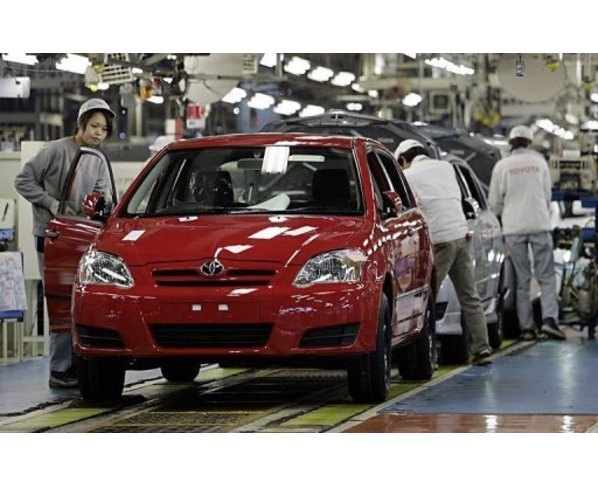

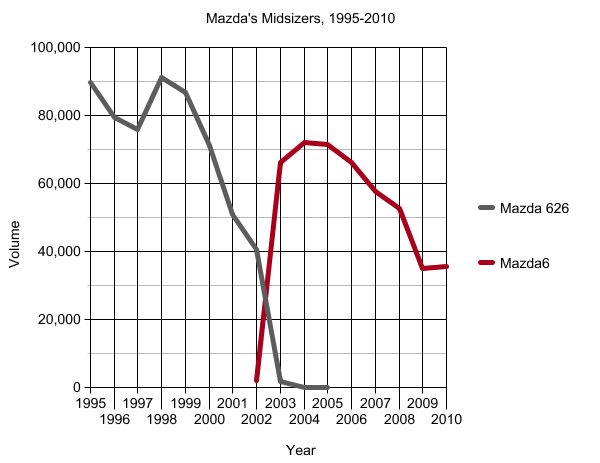

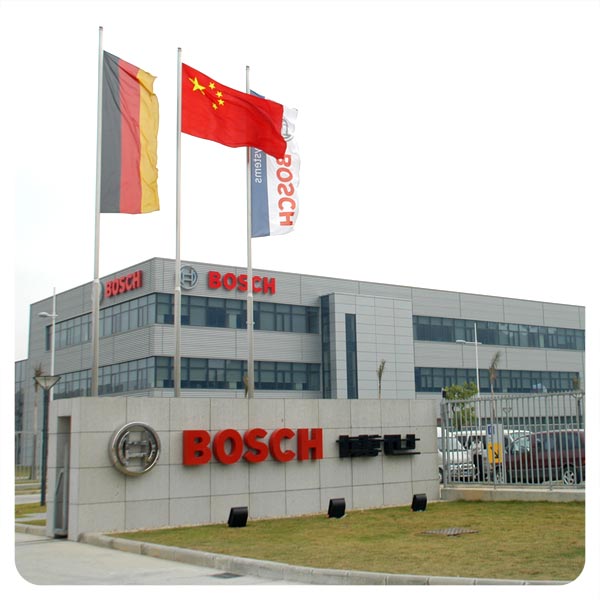
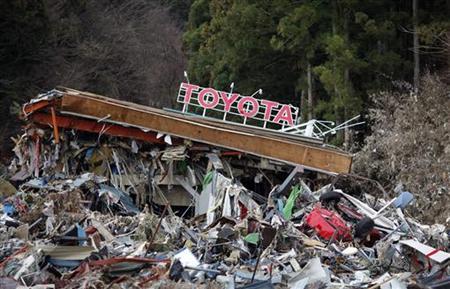
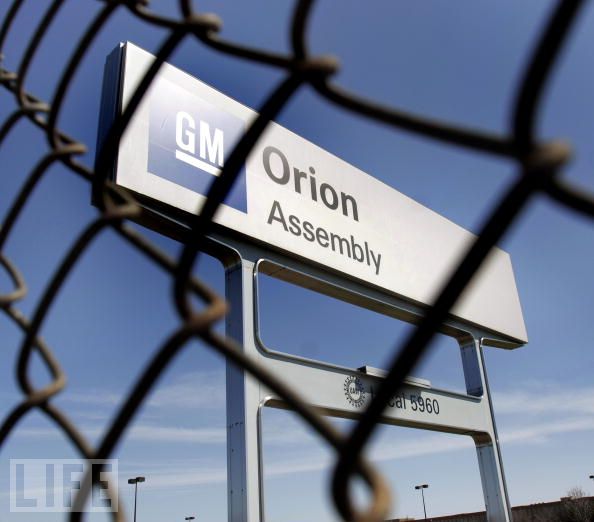

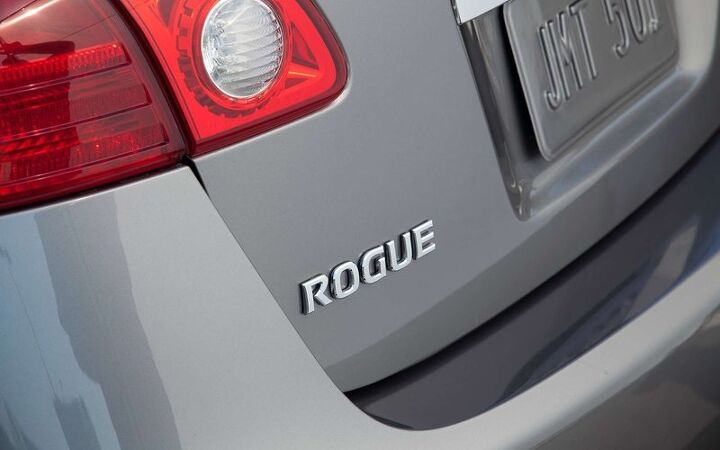
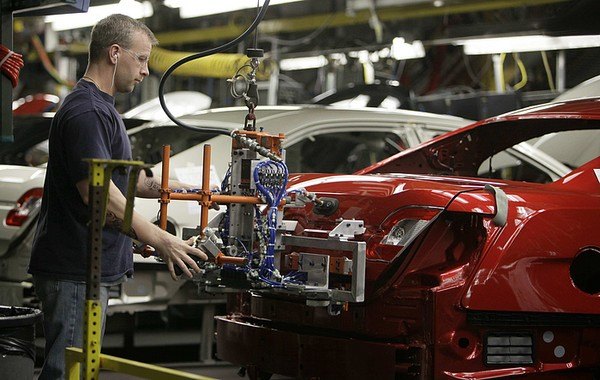




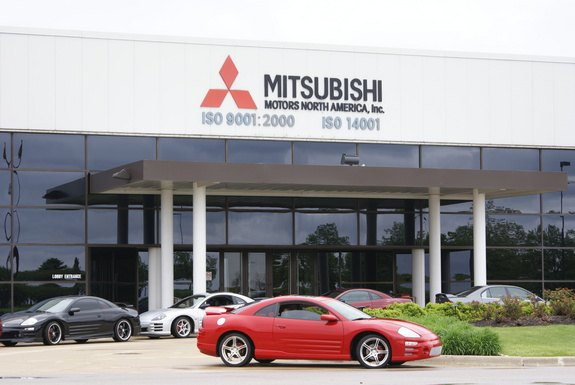
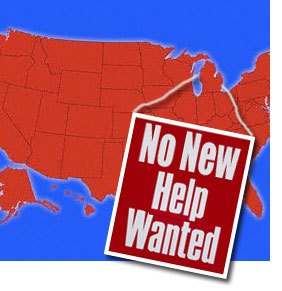

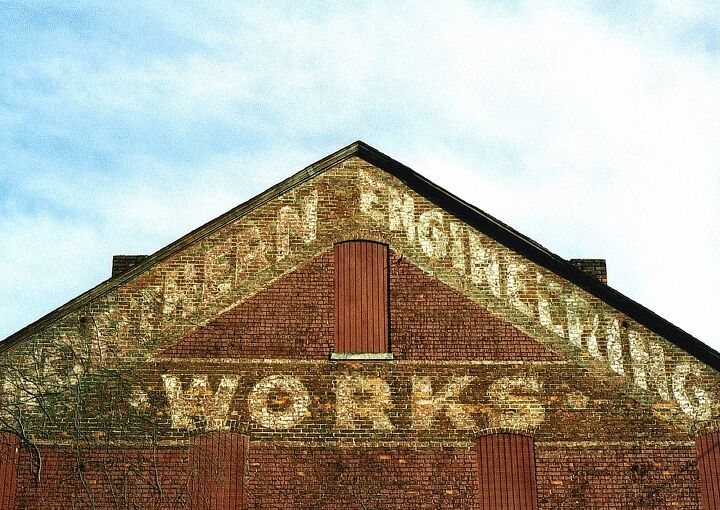

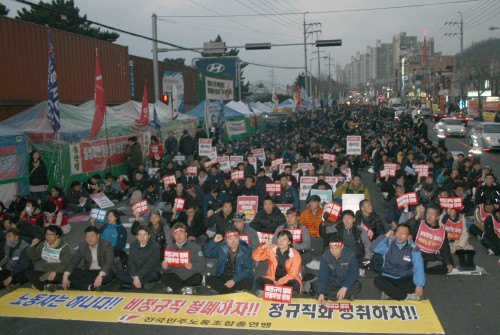

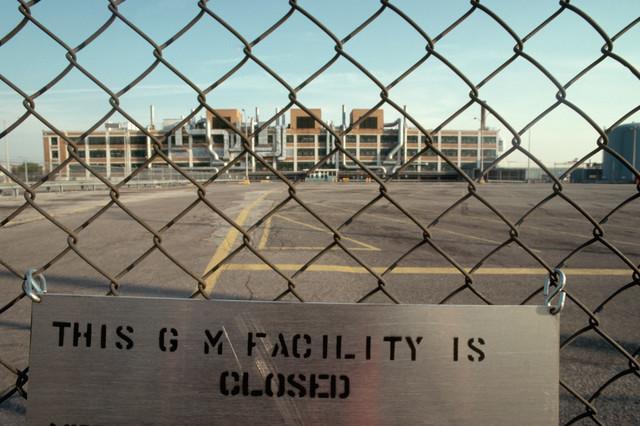
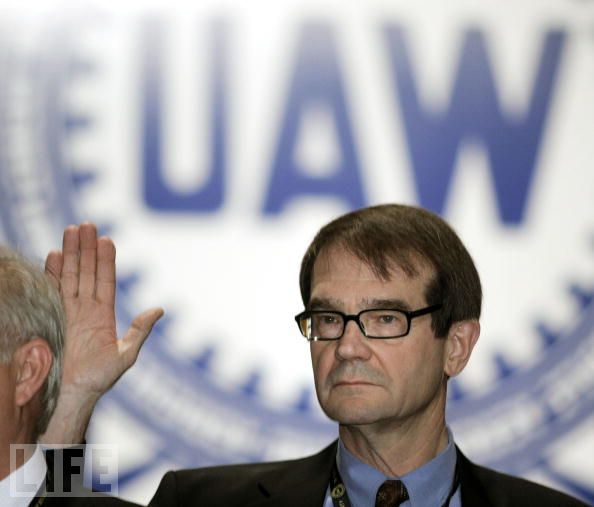

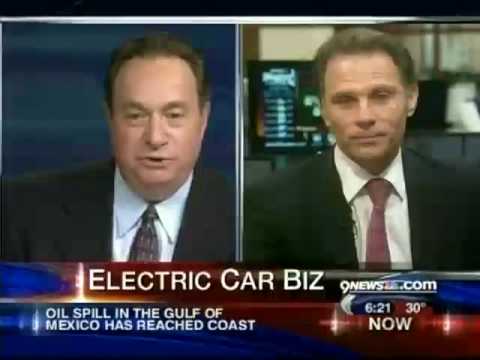
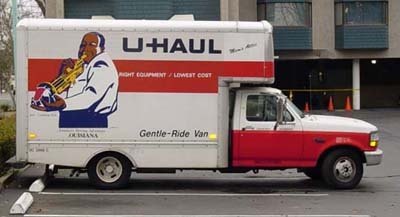


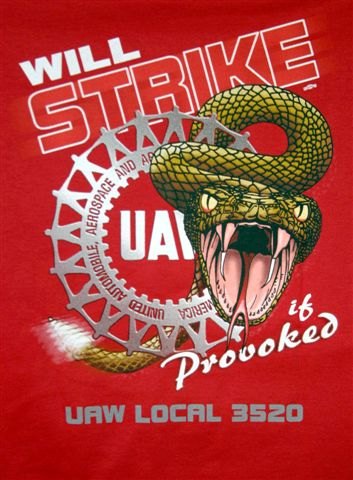
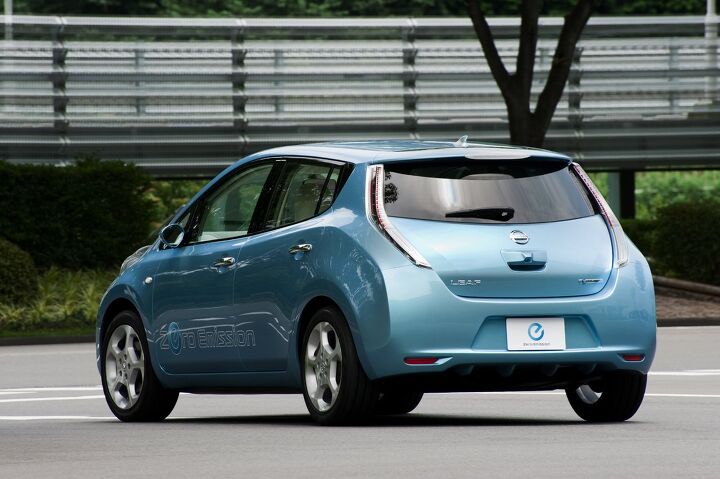



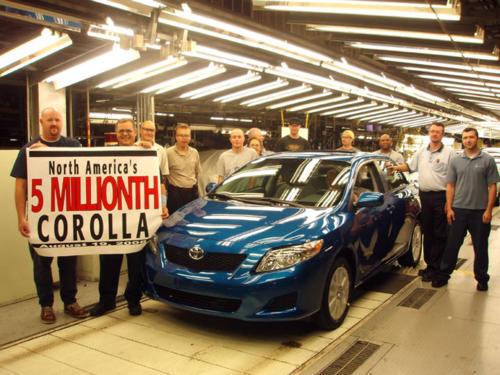
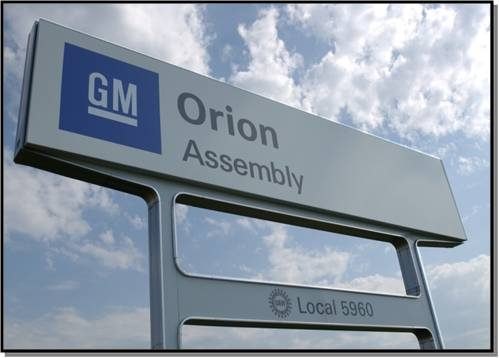
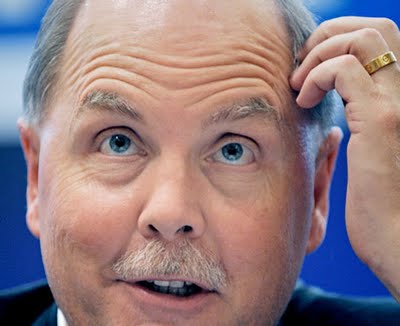


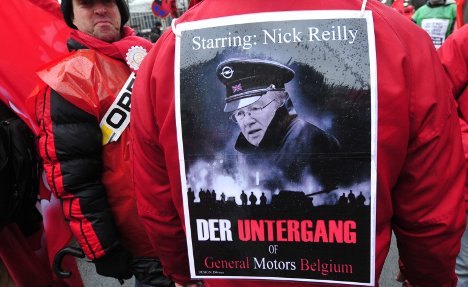














Recent Comments